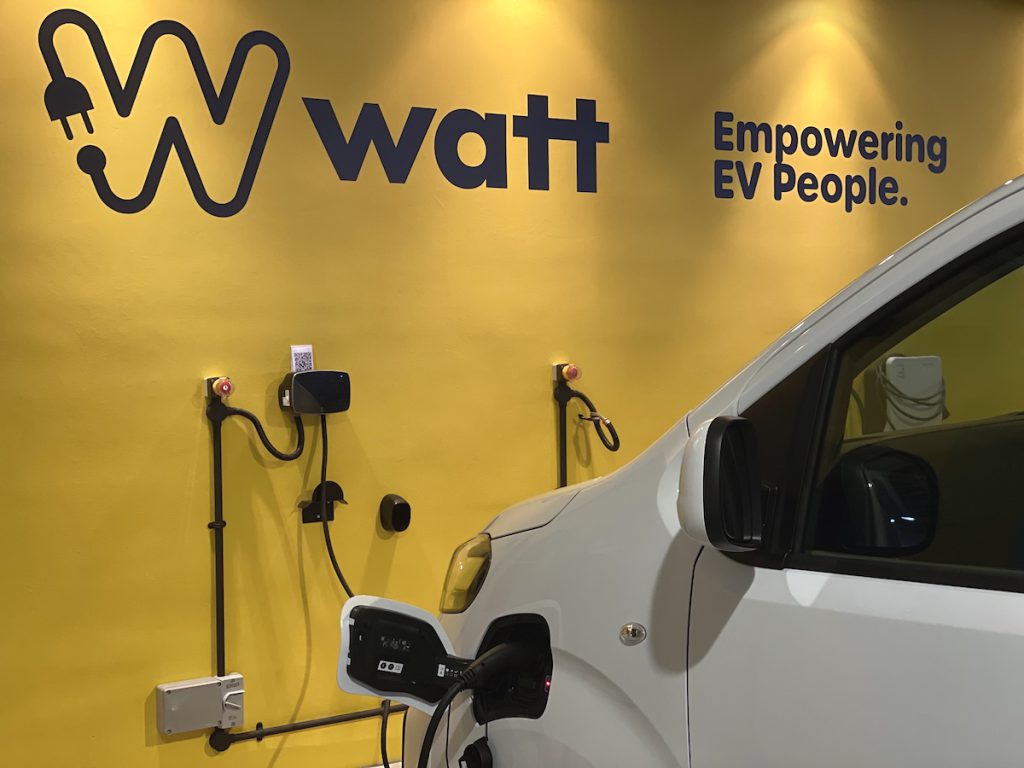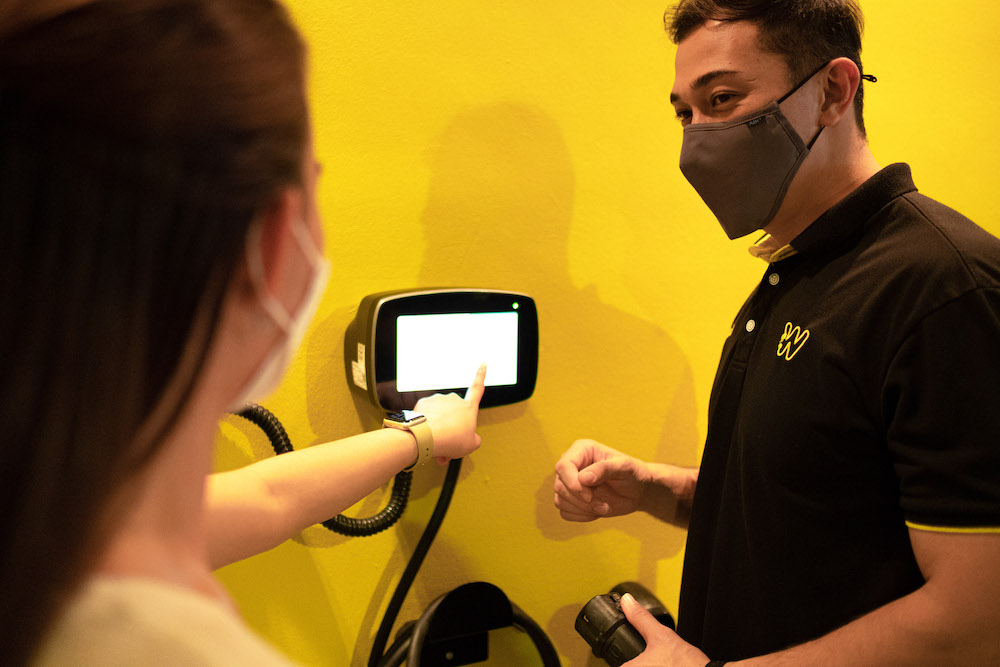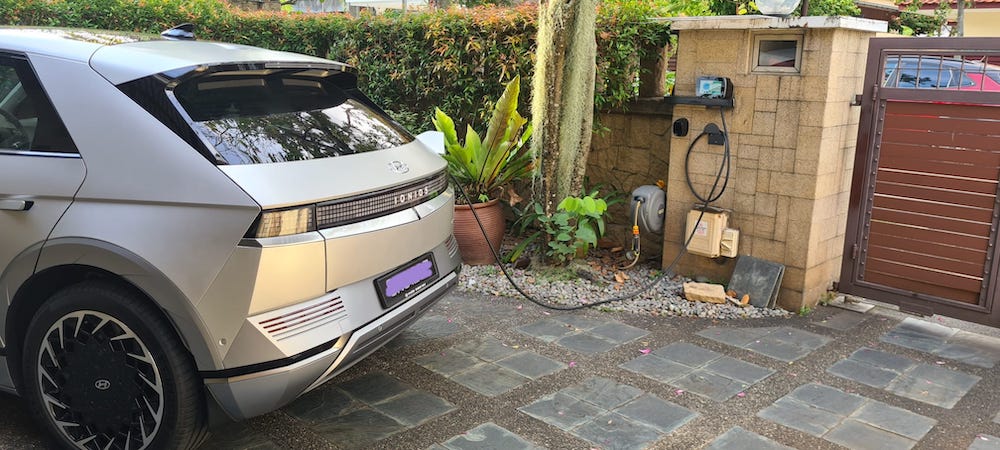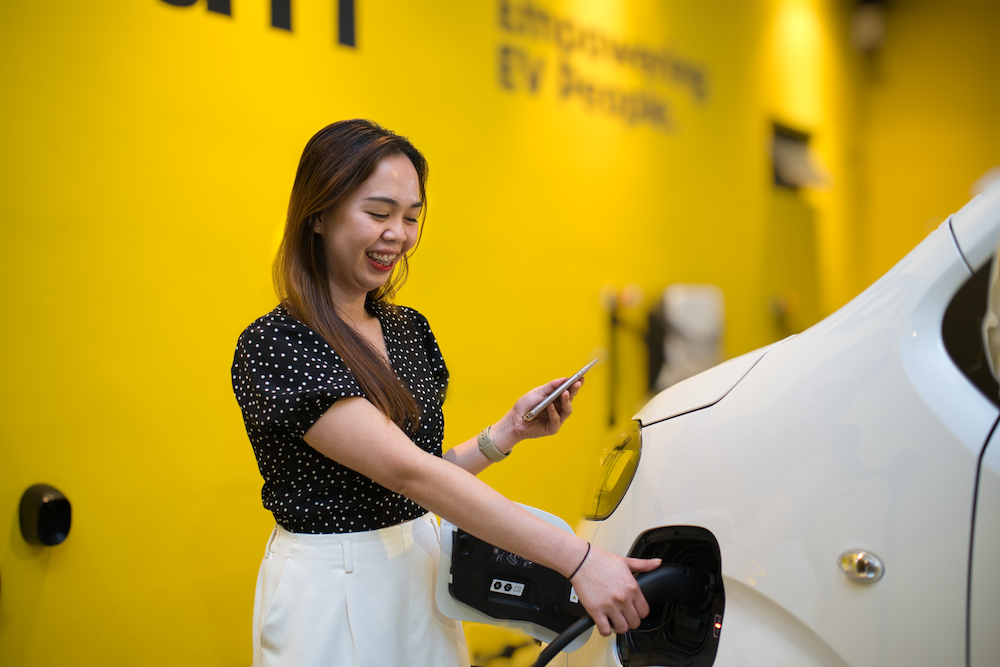This Singapore firm provides condo managers with an EV charger subscription package starting at S$200 per month.
Watt is a joint venture of The Wheelers Auto, Optimus Auto Trading, and Infinity Core that was founded in 2020. The founders are all under the age of 30 and have worked in the fields of automation, technology, and finance.
Watt’s co-founder and Chief Executive Officer is Rayson Lee. The self-proclaimed car nut has decades of experience in the industry, having led companies worth more than $80 million.
Ivan Quek is the company’s co-founder and Chief Commercial Officer. He also brings years of experience in the automotive sector and a thorough understanding of the demands of potential car purchasers to the table.
Tee Wee Keong, the co-founder and Chief Technology Officer of Watt, is the final member of the team. He’s gamification and digital solutions expert with experience working for interactive digital agencies. He has almost a decade of experience in experiential marketing, digital visual content, interactive content, and solution creation.
Watt was founded to assist establish an integrated EV charging network in Singapore after the co-founders spotted a gap in the local EV market where existing EV charging providers were largely focused on hardware and less so on delivering a comprehensive and seamless solution for clients.
Watt has been certified by the Land Transport Authority (LTA) in just three months since its beginning in October 2021 and is now one of 11 approved EV charging operator providers in Singapore.
Taking care of EV-specific issues.
According to the SG Green Plan, Singapore wants to deploy 60,000 electric vehicle chargers by 2030. Assuming that one-third of all cars on the road are EVs, this indicates that the ratio of EVs to chargers will be around five to one.
One major pain point we are addressing is Singapore’s limited space constraints and high population density. … A faster rate of EV adoption will result in a greater shortage of charging points.
The second pain point we have identified is the interpersonal frictions and conflicts resulting from indifferences between users sharing a common EV charging point within a property.
– Ivan Quek, co-founder and Chief Commercial Officer of Watt
Lot hogging, in which drivers leave their fully charged vehicle is charging lots, and crowded parking lots are two typical shared charging difficulties.
“EVs don’t share their charging status with other users. “Without any smart technology to discover and identify open EV charging stations nearby, EV drivers must drive point-to-point to find an available station, assuming the vehicle has enough battery to move,” he continued.
The third stumbling block is Singapore’s present battery charging technology. According to Ivan, slower charging speeds result in longer wait times, and a typical EV charger now takes from six to eight hours to fully charge a vehicle.
Furthermore, property managers are having problems troubleshooting and updating the software on the EV chargers.

Watt
Watt aims to revolutionize the EV charging environment by making it easy, convenient, and profitable for landowners to install and operate electric vehicle chargers.
Watt’s ultimate goal is to create solutions that will improve the EV charging experience.
Every player in the EV ecosystem is supported by its solutions, including property management, EV drivers, and EV charging service providers.
Condominiums can receive up to S$3,500 per year for each electric vehicle charger they possess
WattEmpowers, Watt360, and WattCommunity are the three verticals that support Watt’s company.
With EV charging, WattEmpowers is focusing on generating new revenue streams. Watt has recently launched an EV charger subscription service for condominiums and property owners to help alleviate the expense of the first installation.
“(This) subscription plan (is for) property managers who want to install EV charging in their facilities but are concerned about the cost, ownership, and maintenance of the charger,” Ivan explained.

Watt
According to Watt, condominiums will be able to earn up to S$3,500 per year for each EV charger they own.
Ivan explains that property owners can subscribe to EV chargers for as little as S$200 per month for a 36-month period while sharing revenues with Watt.
The property obtains complete ownership of the EV chargers after 36 months. This allows businesses to save money on their initial capital investment and reap the entire earnings after a set period of time, allowing them to reinvest in more chargers or put the money back into their business.
He explained that the amount is an estimate based on five drivers charging for five days a week, five hours a night, with a standard range of 55km/day (Singaporean daily average).
“It’s a rather conservative estimate.” “EV charging station operators would be able to produce bigger revenues if drivers charged more throughout the day or even on weekends,” he added.
Charge+, a subsidiary of solar energy provider Sunseap, launched an EV charger subscription plan for condominiums in September 2020, which was deemed the “first-of-its-kind” for EV charging in Singapore.
The difference between our subscription and Charge+’s is that we are serving different stakeholders in the ecosystem. Charge+’s subscription is meant for EV drivers, while our subscription plan is meant for property managers, particularly condominiums.
With our subscription plan for property managements, they do not have to fork out the hefty capital upfront and still be able to enjoy the benefits of the charger. The plan would eventually enable them to own the charger and profit from it after 36 months.
– Ivan Quek, co-founder and Chief Commercial Officer of Watt
Watt also helps take care of all aspects of managing an EV charger
Along with the subscription plan, Watt offers property managers two other ownership options: purchase (in which case the property manager will own the EV charging hardware outright) or a partnership (in which case the property manager will share ownership of the EV charging hardware) (Watt will fully own the charging stations entirely for a term period).
Watt has also launched an end-to-end EV charger management system, which property managers can use when the EV charging station is installed.
Watt360 is a service that handles all parts of EV charging station management, including customer service, administrative issues, billing, and technical issues.
With Watt360, drivers and businesses alike can avoid the complexities of EV charging and overhead costs for a risk-free experience.
– Ivan Quek, co-founder and Chief Commercial Officer of Watt
For example, facilities managers are concerned about the requirement to adapt chargers because the current electrical load of properties may not be sufficient to accommodate EV chargers.
In such circumstances, upgrading the charger may be more expensive than the charger itself. Watt solves this problem with its dynamic load balancing system, which optimizes existing charging loads and distributes power securely to all charging vehicles.
Without raising the electrical load, properties can safely and quickly expand the number of charging outlets in parking spaces.

Watt
Ivan stated that after residential properties have sufficient charging facilities, the general public can seek Watt’s EV charging stations in commercial properties such as malls and workplaces.
Watt has received confirmation from ten condominiums since the launch of the LTA’s EV Common Charger Grant, despite the fact that it is still a small enterprise (ECCG).
“We focus on the pain points that each property management company is experiencing and propose our solutions to them.” This strategy has been bolstered by the high quality of our product and services, which has swayed their decisions.”
What’s in store for Watt in the future?

Watt
Watt is now working on a smartphone app, which will be released in mid-April, to make it easier for EV drivers to access Watt’s services.
Data verification and automation via MyInfo are among the app’s primary features, as is a dashboard with charging sites and information, a reservation, waitlist, and queue system, as well as payback rewards (based on charger per kWh) and a rewards catalog.
The software allows users to pay with a credit card or buy KW using the app’s e-wallet.
Ivan mentioned that the team is looking into integrating cryptocurrency payment channels to allow drivers to pay with Ethereum.
“With problem-solving tools and gamification for community building, the app also intends to foster charging etiquette.” “As we expand our outreach beyond property management to EV drivers, this will be critical for our success,” he continued.
When asked about the EV scene in Singapore, Ivan believes that it is severely deficient in a variety of car types, despite the government’s efforts to improve the country’s EV infrastructure.
On the plus side, many major automakers have stated their intention to create electric vehicles, implying that more models will be available in the future. Newer battery technology, such as battery swapping and wireless charging, will emerge over time, according to Ivan.
Watt is committed to meeting demand and developing new app features to respond to new technologies as the EV field evolves.
Watt is also getting some partnerships to help the electric vehicle ecosystem grow. It is now working with Tribeca, a car-sharing company, and Roset Limousine on their first DC fast charger, which will be deployed in industrial parks for their fleet and public use.
It’s also in talks with a number of service providers about converting their present fleet of transportation vehicles to EVs and installing fast chargers at their locations.
Ivan also stated that he hopes to expand Watt’s EV charging solutions to Asian countries such as Indonesia, Malaysia, Vietnam, and Hong Kong in the future.
“By using Singapore as a case study for their main cities, they may use a similar methodology to reproduce the success of EV adoption in their own nations,” he concluded.



![[review] We Break Down Why Huawei P50 Pocket Won’t End Samsung Galaxy Z Flip 3’s Career Yet](http://thetidings.org/wp-content/uploads/2022-02-05-145013-180x101.jpg)

